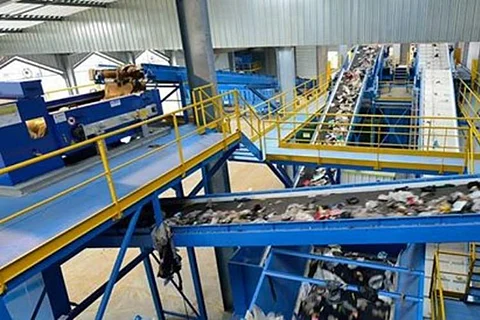

In order to reduce dependency on landfills, the Bruhat Bengaluru Mahanagara Palike (BBMP) is working on setting up two waste-to-energy (WTE) plants to solve the city’s mixed waste problem. At present, Bengaluru generates about 2,800 tonnes of mixed waste on a daily basis; this is dumped in landfills which are unhygienic, unsustainable, and are under scrutiny from the Karnataka High Court and the National Green Tribunal (NGT). According to officials, the plants will take at least a year to be ready to start processing waste. Waste-to-energy is a method of waste management wherein waste is incarcerated, which is then harvested as electricity and distributed to consumers.
BBMP officials say that the first such plant will come up in Bidadi (in Ramanagara district) on the outskirts of Bengaluru, which will have a capacity of 11.5 megawatts. The plant will be set up jointly by the government-run Karnataka Power Corporation Limited (KPCL) and the BBMP. The plant can process up to 600 tonnes of waste, according to the project plan. The other plant, which can process 1000 tonnes, is likely to come up in another year’s time in Kannahali, at the other end of the city’s periphery.
Notably, while WTEs, unlike landfills, are allowed according to union government Solid Waste Management Rules 2016, there has been no success story in India owing to the nature of waste generated in the country. In fact, in most instances, experts point out that the cost of producing electricity/running these plants is also found to pollute the environment. In 2016, the Okhla plant in the national capital region Delhi was fined Rs 25 lakh by the NGT for polluting the environment and releasing toxins in the air, which affected the health of those living around the plant.
Incidentally, plans for a WTE plant, which was earlier planned to be ready in Electronic City by the end of this year through an Indo-French government-government (2018) deal, was dropped. This was done as the French firm 3Wayste found it financially unfeasible to run the plant without any money from the BBMP as agreed in the deal, a source said. Since the time of the proposal, the project was opposed by local residents, who feared environmental pollution.
“Work on the Bidadi plant will commence within a month. We will also have a similar plant in the Kanhalli plant. We will follow the SWM rules, we will try to segregate as much as possible, and only burn waste that cannot be recycled and has dry combustible value,” Randeep D, Special Commissioner of Solid Waste Management, BBMP, told TNM. He added, “Despite its demerits, there is no alternative to WTEs as even though mixed waste generation is reducing, we cannot expect not to generate mixed waste at all.”
Incidentally, the BS Yediyurappa-led government is mulling setting up a dedicated waste processing agency like the BWSSB (Bangalore Water Supply and Sewerage Board) for city’s water and sewage management.
Sandhya Narayan, a member of the Solid Waste Management Round Table, which is a panel of experts working with the BBMP, said that instead of WTEs the BBMP should focus on recycling, composting and Biomethanation. She said that when all of these options to deal with garbage are exhausted, then it can be used to generate fuel or sent to cement units.
"Incineration based waste to energy plants have consistently failed in India. These are heavily polluting and financially unviable. With mixed waste getting processed residents will face severe health issues and ecology will be impacted adversely affecting farming communities. It’s inhuman to consider life and livelihood of residents in outskirts as collateral damage. This approach to waste management has to change. Even large SWM plants that have been troubling residents have to be phased out. Segregating and decentralized processing has to be aggressively pushed," Deepu Chandran, a Bengaluru resident, said.